The Sun is awesome. It has given us so many beautiful and amazing things that it simply can’t be called anything other than that.
Just think about it: it provides all of Earth’s living creatures with warmth, is a key part of the oxygen-making process, gives us marvelous sunrises and sunsets, makes stunning eclipses happen, and, on top of it all, is one of the sources of vitamin D and makes us happy (because serotonin).
Well, brace yourself because the Sun just got even cooler (awesomeness-wise, not temperature). Apart from it putting on a haunting face for Halloween, science has just released a handful of images and videos of the Sun and they are considered the highest resolution ever taken in the history of mankind. AND, it looks like caramel popcorn.
This is what the sun looks like after a closeup using the Inouye Solar Telescope
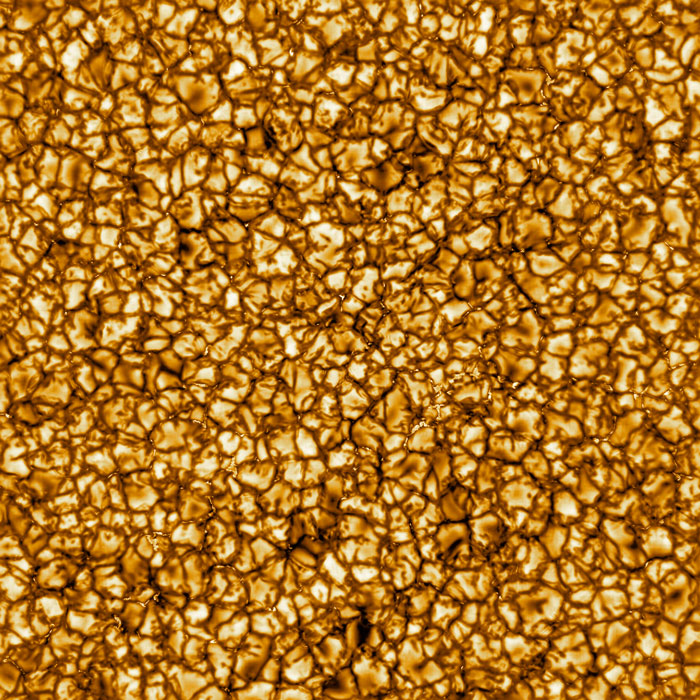
The National Solar Observatory (NSO) has recently published several photos and videos of the Sun’s surface snapped by the National Science Foundation’s Daniel K. Inouye Solar Telescope. It is currently making headlines for being the highest resolution imagery available and providing unprecedented detail of our most beloved star above.
The Inouye Solar Telescope is a 4-meter solar telescope located on the summit of Haleakala, Maui, in Hawaii. It is currently the largest telescope on Earth, the sole purpose of which is to study the Sun. The aforementioned imagery is the telescope’s debut in the world of astronomy and is said to bring about a new era of solar science, greatly pushing science towards better understanding the giant fireball in the sky and its impact on our planet.
The newly-released imagery is currently the highest resolution footage available
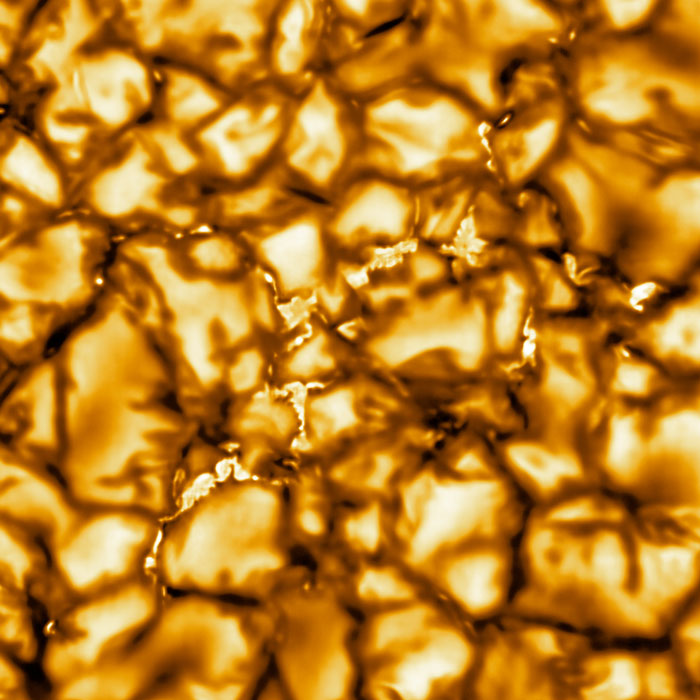
A single bubble of plasma on the surface of the Sun is roughly the size of Texas
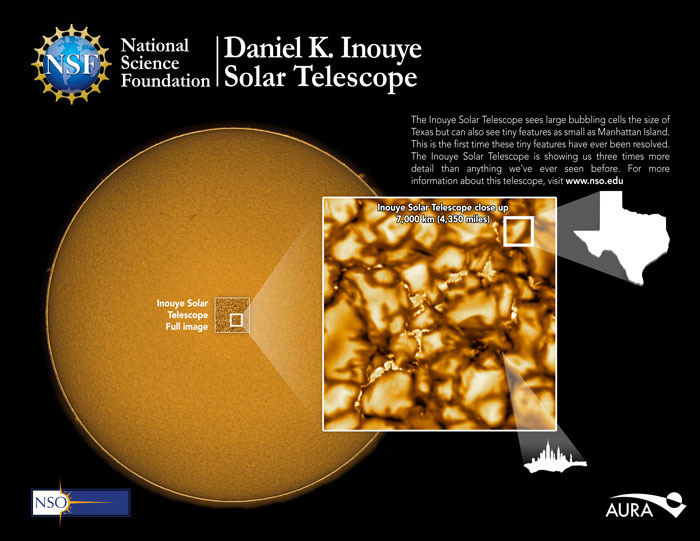
At first glance, people seem to think that it’s a top-down view of caramel popcorn. And who can blame them? It certainly does look like it. However, as the NSO explained, it’s actually turbulent plasma “boiling” on the surface of the sun. These are powerful motions that transport heat outward from inside the star. This process is the reason behind the cell-like structure of the surface.
The Sun is roughly 864,400 miles (or 1,391,000 kilometers) across, which is about 109 times larger than the diameter of the Earth. So, in context, one average-sized “popcorn shell” in the image approx. equates to the size of the State of Texas.
The NSO also released video footage of the “bubbling” of the plasma found on the Sun’s surface
Take a look at all 3 clips made available to the public by the NSO
The Inouye Solar Telescope can produce images with unprecedented detail. It can cover a region of the Sun as wide as 38,000 kilometers and can provide a close up as small as 30 kilometers. Considering that the Sun is about 92,957,130 miles (or 149,599,999 kilometers) away from us, this is thus said to be a phenomenal scientific feat.
In a press release, NSF Division Of Astronomical Sciences Program Director David Boboltz explained that these images are just the beginning. Over the next 6 months, the team behind the telescope will test it to ensure that it can be used by the international solar scientific community. He highlighted that, in its first 5 years, the telescope is expected to collect more information about the sun than what was collected since Galileo first pointed his telescope at the Sun in 1612.

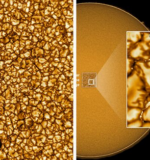
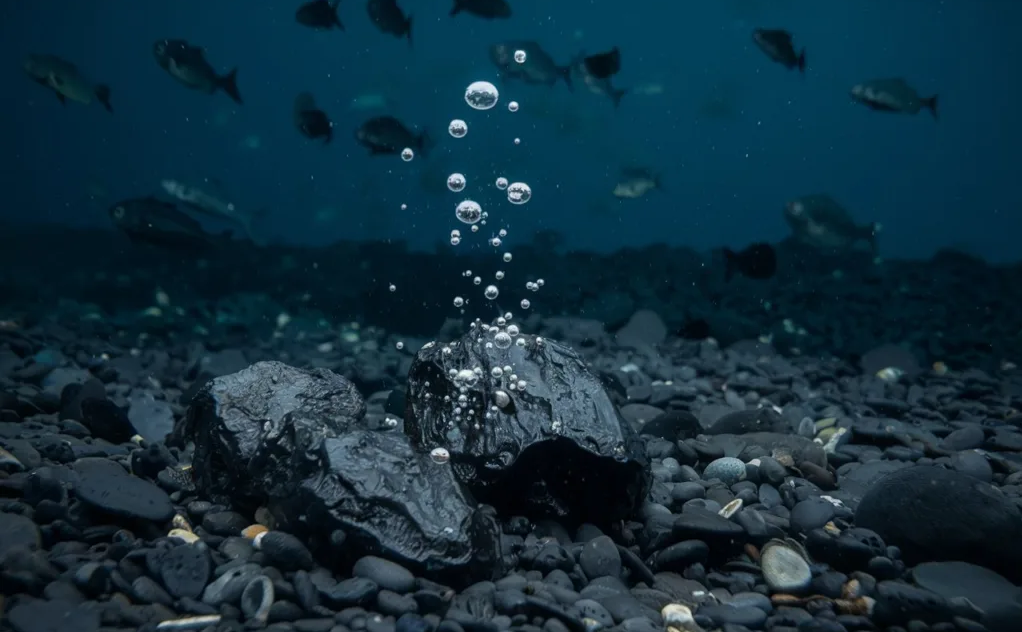





 Photographer Finds Locations Of 1960s Postcards To See How They Look Today, And The Difference Is Unbelievable
Photographer Finds Locations Of 1960s Postcards To See How They Look Today, And The Difference Is Unbelievable  Hij zet 3 IKEA kastjes tegen elkaar aan en maakt dit voor zijn vrouw…Wat een gaaf resultaat!!
Hij zet 3 IKEA kastjes tegen elkaar aan en maakt dit voor zijn vrouw…Wat een gaaf resultaat!!  Scientists Discover 512-Year-Old Shark, Which Would Be The Oldest Living Vertebrate On The Planet
Scientists Discover 512-Year-Old Shark, Which Would Be The Oldest Living Vertebrate On The Planet  Hus til salg er kun 22 kvadratmeter – men vent til du ser det indvendigt
Hus til salg er kun 22 kvadratmeter – men vent til du ser det indvendigt  Superknepet – så blir snuskiga ugnsformen som ny igen!
Superknepet – så blir snuskiga ugnsformen som ny igen!  Meteorite That Recently Fell in Somalia Turns Out to Contain Two Minerals Never Before Seen on Earth
Meteorite That Recently Fell in Somalia Turns Out to Contain Two Minerals Never Before Seen on Earth  Nearly Frozen Waves Captured On Camera By Nantucket Photographer
Nearly Frozen Waves Captured On Camera By Nantucket Photographer  It’s Official: Astronomers Have Discovered another Earth
It’s Official: Astronomers Have Discovered another Earth 